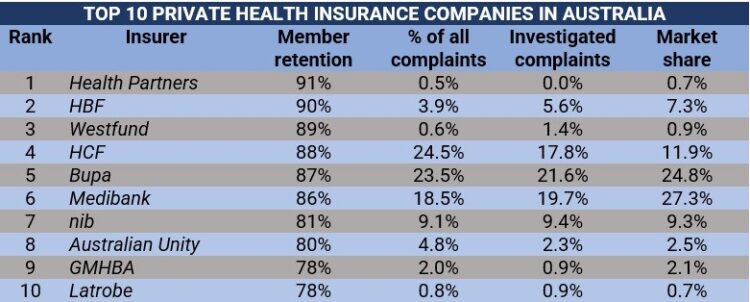
Can you have multiple health insurance plans? The answer, like many things in the world of health insurance, is “it depends.” While it’s not unheard of to have multiple plans, there are specific circumstances and regulations that govern whether it’s possible and how it might work.
Navigating the complexities of health insurance can be challenging, especially when considering the possibility of having multiple plans. This article delves into the ins and outs of multiple health insurance plans, exploring the different types, eligibility criteria, benefits, drawbacks, and financial implications. We’ll also examine the legal and ethical considerations to ensure you’re well-informed when making decisions about your health insurance coverage.
Types of Health Insurance Plans

Navigating the world of health insurance can feel overwhelming, especially when you’re faced with a wide range of plan options. Understanding the different types of plans available can help you make an informed decision that best suits your individual needs and budget.
Health Maintenance Organizations (HMOs)
HMOs are known for their lower premiums and emphasis on preventive care. They typically have a narrow network of healthcare providers, meaning you must choose a primary care physician (PCP) within the network. Referrals from your PCP are often required to see specialists.
- Lower Premiums: HMOs generally have lower monthly premiums compared to other plans, making them attractive for budget-conscious individuals.
- Emphasis on Preventive Care: HMOs encourage regular checkups and screenings, which can help identify potential health issues early on.
- Narrow Network: You must choose a PCP within the HMO’s network and require referrals for specialist care.
HMOs are well-suited for individuals who prioritize cost-effectiveness and prefer a structured approach to healthcare within a limited network.
Preferred Provider Organizations (PPOs)
PPOs offer more flexibility compared to HMOs, allowing you to see any doctor or specialist without a referral. While they typically have higher premiums than HMOs, they offer greater choice and coverage for out-of-network care.
- Broader Network: PPOs have a wider network of providers, giving you more choices for doctors and specialists.
- No Referral Required: You can see any provider within the network without a referral, providing more flexibility.
- Out-of-Network Coverage: PPOs offer some coverage for out-of-network care, though you’ll likely pay higher out-of-pocket costs.
PPOs are a good option for individuals who value flexibility, prefer a wider network of providers, and are willing to pay slightly higher premiums for this convenience.
Point-of-Service (POS) Plans
POS plans combine features of both HMOs and PPOs, offering a hybrid approach to healthcare. They typically have a network of providers but allow you to see out-of-network providers for a higher cost.
- Hybrid Approach: POS plans combine features of HMOs and PPOs, offering a balance between cost-effectiveness and flexibility.
- Network Access: You can choose a PCP within the network and receive referrals for specialist care.
- Out-of-Network Option: You can see out-of-network providers for a higher cost, offering more flexibility.
POS plans can be a good option for individuals who want the cost-effectiveness of an HMO but also desire the flexibility of a PPO, though they may require a more thorough understanding of the plan’s coverage and cost structure.
Exclusive Provider Organizations (EPOs)
EPOs are similar to HMOs in that they have a limited network of providers and require referrals for specialist care. However, EPOs typically offer a broader network than HMOs and do not cover out-of-network care.
- Limited Network: EPOs have a limited network of providers, requiring you to choose a PCP within the network.
- Referral Required: You need referrals from your PCP to see specialists.
- No Out-of-Network Coverage: EPOs do not cover out-of-network care, making them a less flexible option.
EPOs are suitable for individuals who prioritize cost-effectiveness and are comfortable with a limited network of providers, but do not require the flexibility of out-of-network care.
Health Savings Accounts (HSAs)
HSAs are not technically a health insurance plan but rather a tax-advantaged savings account that can be used to pay for healthcare expenses. They are typically paired with a high-deductible health plan (HDHP).
- Tax-Advantaged Savings: Contributions to an HSA are tax-deductible, and withdrawals for qualified medical expenses are tax-free.
- High-Deductible Health Plan: HSAs are typically paired with HDHPs, which have lower premiums but higher deductibles.
- Account Ownership: You own the HSA account and can carry over unused funds to future years.
HSAs are ideal for individuals who are healthy, have a predictable healthcare budget, and want to save money on healthcare expenses.
Eligibility for Multiple Plans

It’s possible to have more than one health insurance plan, but it’s important to understand the rules and regulations that apply. This is because having multiple plans can lead to complications, such as overlapping coverage and potential penalties.
Factors Affecting Eligibility for Multiple Plans
Several factors determine your eligibility for multiple health insurance plans. These factors can include:
- Employment Status: If you’re employed, your employer might offer a health insurance plan. You may also be eligible for individual health insurance plans through the Affordable Care Act marketplace.
- Dependents: If you have dependents, they might be eligible for coverage under your employer’s plan or through a separate individual plan.
- Pre-existing Conditions: If you have a pre-existing condition, you may be eligible for a plan that provides comprehensive coverage for your medical needs.
Potential Consequences of Overlapping Coverage
Having multiple health insurance plans can lead to overlapping coverage, which can create confusion and complications.
- Coordination of Benefits: If you have multiple plans, the insurance companies will coordinate benefits to ensure you’re not paid twice for the same medical expenses.
- Premium Costs: You may end up paying higher premiums for multiple plans.
- Administrative Complexity: Managing multiple plans can be complex and time-consuming.
Consequences of Duplicate Coverage
In some cases, having duplicate coverage can lead to penalties.
- Medicare: You can’t have two Medicare plans at the same time.
- Medicaid: If you have Medicaid and another plan, you may have to choose between the two.
It’s crucial to consult with a qualified insurance agent or broker to understand the rules and regulations surrounding multiple health insurance plans. They can help you determine your eligibility and make informed decisions about your coverage.
Reasons for Multiple Plans
There are several reasons why individuals might choose to have multiple health insurance plans. Some individuals may have multiple plans due to their employment situation, while others may choose to have multiple plans for coverage flexibility or to ensure they have sufficient coverage for specific needs.
Benefits of Having Multiple Plans
Having multiple health insurance plans can offer several benefits, including:
- Dual Employment: Individuals who work two or more jobs may receive health insurance coverage from each employer. This can provide greater coverage and financial protection.
- Family Coverage: Families with multiple working members may find it advantageous to have multiple plans to ensure that everyone is covered. This can be particularly helpful if one family member has a pre-existing condition that is not covered by the other’s plan.
- Specialized Coverage: Individuals with specific health needs may find that having multiple plans provides better coverage for their unique needs. For example, someone with a chronic illness may have a plan that provides specialized coverage for their condition.
- Increased Coverage Limits: Having multiple plans can increase the overall coverage limits available to the individual. This can be helpful for individuals with high medical expenses or those who anticipate needing extensive medical care in the future.
Potential Drawbacks and Risks
While there are benefits to having multiple health insurance plans, there are also potential drawbacks and risks to consider.
- Coordination of Benefits: Managing multiple plans can be complex, especially when it comes to coordinating benefits. Individuals need to understand the different coverage rules and limitations of each plan to ensure they are receiving the maximum benefits possible.
- Increased Premiums: Having multiple plans will generally result in higher premiums. This can be a significant financial burden for individuals, especially if they are not able to offset the increased cost with savings or tax benefits.
- Potential for Overlap: There is a risk of overlapping coverage if the plans are not carefully coordinated. This can lead to unnecessary expenses and confusion. It is crucial to ensure that the plans are coordinated to avoid paying for the same coverage twice.
- Administrative Complexity: Managing multiple plans can be administratively complex. Individuals need to keep track of different policies, deductibles, and co-pays. This can be time-consuming and frustrating.
Coordination of Benefits
Coordination of benefits (COB) is a process that helps prevent you from receiving duplicate payments for the same medical expenses if you have coverage from multiple health insurance plans. It ensures that you are only reimbursed up to the total cost of your medical bills, preventing overpayment.
COB applies when you have two or more health insurance plans, such as coverage from your employer and a spouse’s employer, or coverage from a parent and your own employer. The principle behind COB is to determine which plan is considered primary and which is secondary. The primary plan is responsible for paying the majority of your medical expenses, while the secondary plan covers the remaining costs, up to the limits of its coverage.
Determining the Primary and Secondary Plans, Can you have multiple health insurance plans
The process of determining the primary and secondary plans can vary depending on the specific plans involved. However, most plans follow a set of rules established by the National Committee for Quality Assurance (NCQA) to determine which plan is primary. These rules are based on the following factors:
- Plan Relationship: The plan that covers the person who is the “insured” is generally considered primary. For example, if you are covered under your employer’s plan and your spouse is covered under their employer’s plan, your employer’s plan would typically be primary.
- Plan Type: Certain plan types, such as Medicare, are often considered primary over other types of coverage. For example, if you have Medicare and a private health insurance plan, Medicare would usually be primary.
- Plan Date of Coverage: The plan with the earliest date of coverage is often considered primary. This rule applies when both plans cover the same individual as the “insured,” and the plan types are similar. For example, if you have two employer-sponsored plans, the plan you had before the other plan began would typically be primary.
- Plan Coverage: Some plans may have specific rules regarding coverage for dependents. For example, if a child is covered under both a parent’s plan and a separate plan for the child, the parent’s plan would usually be primary.
Examples of COB in Practice
Here are a few examples of how COB works in practice:
- Example 1: You are covered under your employer’s health insurance plan and your spouse is covered under their employer’s plan. You both have coverage for your child. In this case, your employer’s plan would likely be primary for your child’s medical expenses, and your spouse’s plan would be secondary. Your employer’s plan would pay the majority of the costs, and your spouse’s plan would cover any remaining expenses up to its coverage limits.
- Example 2: You have Medicare and a private health insurance plan. You are hospitalized for a medical condition. Medicare would be considered primary, and your private health insurance plan would be secondary. Medicare would pay the majority of the hospital expenses, and your private health insurance plan would cover any remaining costs up to its coverage limits.
- Example 3: You are covered under two different employer-sponsored health insurance plans, one from your current employer and one from a previous employer. You are currently covered under both plans, and both plans cover you as the “insured.” In this case, the plan you had before the other plan began would likely be primary, and the newer plan would be secondary.
Financial Implications

Having multiple health insurance plans can have significant financial implications, impacting both your expenses and potential savings. Understanding the factors that influence these costs is crucial for making informed decisions about your health insurance coverage.
Potential Cost Savings
Multiple health insurance plans can offer potential cost savings through various mechanisms. These savings can stem from:
- Lower Premiums: You might find lower premiums for specific plans that cater to your individual needs, such as a plan with lower deductibles for common medical expenses.
- Coverage for Gaps: Some plans may cover services or treatments not included in your primary plan, such as specialized therapies or overseas medical expenses.
- Cost-Sharing Reduction: Certain plans may offer cost-sharing reductions, lowering your out-of-pocket expenses for specific services.
- Bundled Discounts: Some insurance providers may offer discounts for bundling multiple insurance policies, such as health, life, or auto insurance.
Potential Increased Expenses
While multiple plans offer potential cost savings, they can also lead to increased expenses. These increased costs may arise from:
- Higher Premiums: The combined premiums for multiple plans could be higher than a single comprehensive plan, especially if you are not strategically selecting plans.
- Increased Administrative Costs: Managing multiple plans can involve additional administrative costs, such as tracking deductibles, copayments, and coverage details.
- Duplication of Coverage: Having overlapping coverage for specific services can result in duplicate payments, potentially leading to unnecessary expenses.
Factors Affecting Overall Cost
Several factors can significantly affect the overall cost of multiple health insurance plans:
- Plan Type: The type of plans you choose, such as HMO, PPO, or HSA, can significantly impact your premiums and out-of-pocket expenses.
- Coverage Levels: The level of coverage you choose, including deductibles, copayments, and out-of-pocket maximums, will directly influence your costs.
- Health Status: Your individual health status, including pre-existing conditions, can affect your eligibility for certain plans and potentially impact your premiums.
- Location: Your geographic location can influence the cost of insurance plans, as providers adjust premiums based on local healthcare costs and market competition.
- Age and Family Size: Your age and the number of dependents covered by your insurance plan can affect your premiums.
Legal and Ethical Considerations
While having multiple health insurance plans might seem like a smart financial strategy, it’s essential to understand the legal and ethical implications associated with it. This section explores potential risks and offers guidance on how to navigate these complexities responsibly.
Potential for Fraud or Abuse
The possibility of fraud or abuse arises when individuals intentionally misrepresent their health insurance coverage to gain unauthorized benefits. This can include:
- Double Billing: Submitting claims to multiple insurers for the same medical expenses, aiming to receive reimbursement from both.
- Misrepresenting Coverage: Claiming coverage for services or treatments that are not actually covered by the plan.
- Concealing Existing Coverage: Failing to disclose existing insurance plans when applying for a new one, potentially leading to higher premiums or denied claims.
These actions can have severe consequences, including fines, penalties, and even criminal charges.
Guidelines for Ethical and Legal Compliance
To avoid legal and ethical issues when considering multiple health insurance plans, adhere to the following guidelines:
- Full Disclosure: Be transparent with all insurers about your existing coverage. Disclose all relevant information, including any other plans you may have.
- Coordinate Benefits: Understand how your plans coordinate benefits and follow the established procedures for submitting claims. Ensure you only claim benefits from the primary insurer for a specific medical expense.
- Avoid Double Billing: Never submit claims for the same medical expenses to multiple insurers. This is considered fraudulent and can result in severe consequences.
- Seek Professional Advice: Consult with a qualified insurance professional or legal advisor if you have any questions or concerns about the legal and ethical implications of multiple health insurance plans.
Ultimate Conclusion: Can You Have Multiple Health Insurance Plans
Ultimately, the decision to have multiple health insurance plans is a personal one, influenced by individual circumstances and priorities. By understanding the different types of plans, eligibility requirements, coordination of benefits, and financial implications, you can make an informed choice that best suits your needs. Remember to consult with a qualified insurance professional to discuss your specific situation and explore the options available to you.
General Inquiries
Can I have multiple health insurance plans if I’m self-employed?
Yes, you can potentially have multiple health insurance plans if you’re self-employed. However, it’s crucial to understand the rules and regulations that apply to self-employed individuals and how those plans may interact.
Can I use my spouse’s health insurance plan if I have my own?
You may be able to use your spouse’s health insurance plan if you have your own, but it’s subject to coordination of benefits rules. The primary plan would cover the majority of your healthcare costs, while the secondary plan would cover the remaining expenses.
What happens if I have multiple health insurance plans and need to see a specialist?
You should contact both insurance companies to determine which plan is primary and which is secondary for specialist care. It’s essential to follow the procedures Artikeld by each plan to ensure proper coverage.





